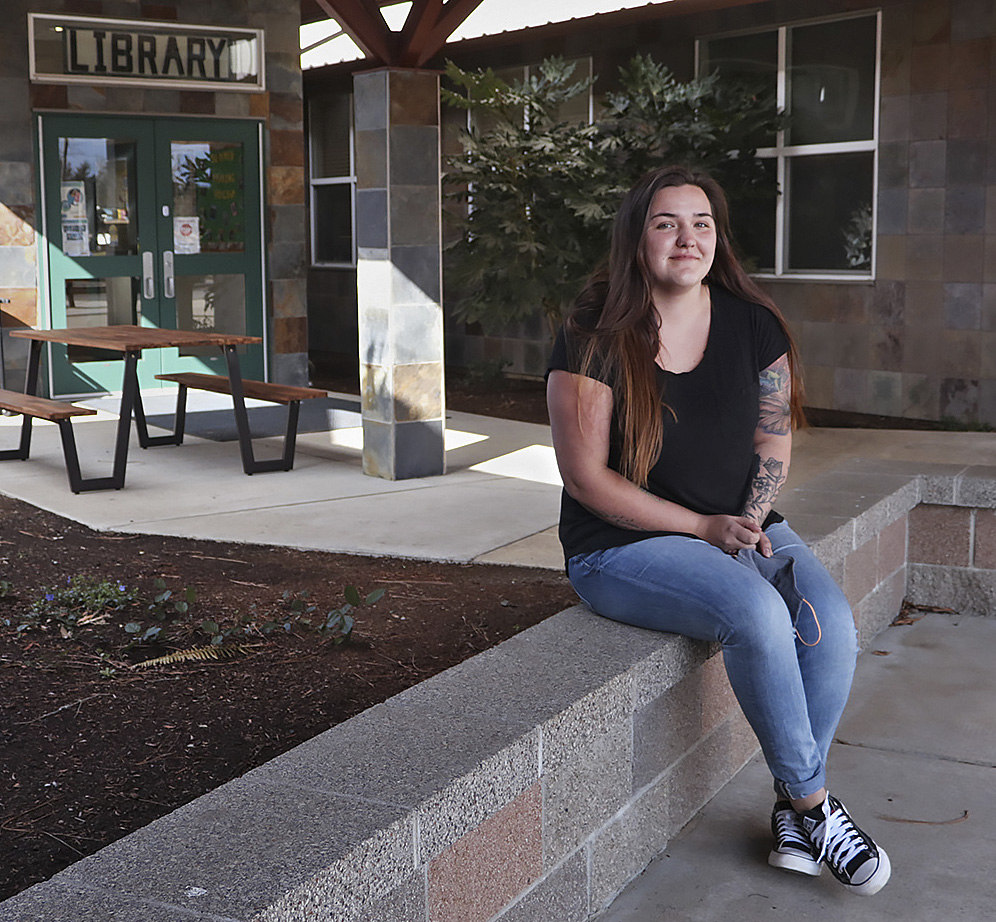Health & Education
Revitalizing Chinuk Wawa during a pandemic

By Kamiah Koch
Smoke Signals social media/digital journalist
As a young Grand Ronde Tribal member, Zoey Holsclaw learned storytelling happens from the first frost until the frogs sing.
Wintertime was when activity would slow and the Elders of the Confederated Tribes of Grand Ronde could share their stories and history in Chinuk Wawa, their Native language.
“I love speaking the language, and part of why I want to teach people to speak in Chinuk Wawa is because we don’t have that many speakers right now,” Holsclaw said. “If we lose all of our speakers and we lose our language, and that’s a huge part of our culture that we won’t be able to get back.”
Today after centuries of colonization, the number of fluent speakers has dwindled to an estimated double-digit number.
Holsclaw is one of the seven Chinuk Wawa teachers in the Grand Ronde Language Department. She is also the department’s outreach coordinator, which means she is responsible for finding ways to interest more people in learning the language.
She began learning Chinuk Wawa as a child. While she was learning to say “hello” and “goodbye” in preschool classes, her older sister, Ali Holsclaw, began to take adult classes.
The sisters continued to learn the language, becoming two of the few fluent speakers. That eventually led them to teaching.
But unlike her sister, Zoey started her position in the middle of the COVID-19 pandemic, when all classes shifted to an online format.
On her first day, she said, she was one of the only ones working in the building after someone in her department tested positive for COVID-19 and her new co-workers were quarantining at home.
“At first, I was really nervous about teaching virtually and probably the first couple of months I hated it because none of the kids want to turn their cameras on and they don’t want to participate,” Zoey said. “But now that I’m getting into a swing of things, I kind of like it. But we’re also going to in-person teaching next week, so things are being thrown up in the air again.”
Throughout the pandemic, Zoey intermittently worked from home. COVID-19 is not something she is happy about, but working remotely gave her time to be at home with her 1-year-old daughter and see her achieve baby milestones.
Her daughter even participated in teaching classes from home one day, mimicking her mom by holding up Chinuk Wawa vocabulary flashcards to the virtual class.
But teaching remotely takes even longer, and Zoey says she still feels pressure to keep their language alive.
“It takes three weeks to get through one lesson so that every kid is on the same page,” she said. “I could just move on, but I don’t. The goal is to create speakers, and so I don’t want to leave kids behind when they don’t show up because that just seems like the opposite of what I want to do.”
In her office, she has a cabinet full of books and binders of Native languages no one speaks anymore. She attributes the loss of those languages to the forceful relocations of Tribes to reservations and assimilation practices that continued into the 20th century.
One such practice was the federal removal of Grand Ronde’s Tribal sovereignty in 1954 in what was also known as the Termination era.
“Our area was affected by assimilation, and termination had a huge effect on the people here, especially when it comes to learning their culture and having pride in who they are,” Zoey said. “There is still pride there. It’s just when you grow up in an area where you can’t really show that, it kind of is suppressed and kind of hard to get involved when you’ve gone your whole life being told that you can’t be Native.”
Termination meant the Tribe no longer had recognition from the United States government, losing what was promised in signed treaties and federal aid.
However, in 1983, a group of Grand Ronde Tribal members raised enough money to go to Washington, D.C., to appeal to Congress. They won, regaining recognition. But 30 years of damage was already done.
“There’s a lot of cultural shame and trauma that has kind of happened to our people, and that kind of sits with a lot of our Elders. And so there’s shame in wanting to learn the language, because people feel like they should already know it, but they don’t.” Zoey said. “But since the pandemic, there have been quite a few others that have expressed interest in learning, so that’s something that I’m wanting to explore more as the outreach coordinator.”
On March 6, the U.S. Senate approved the largest investment in Native programs with $31 billion going to Native communities, including $20 million to mitigate the effect of the coronavirus on Native languages, as part of the COVID-19 American Rescue Plan.
